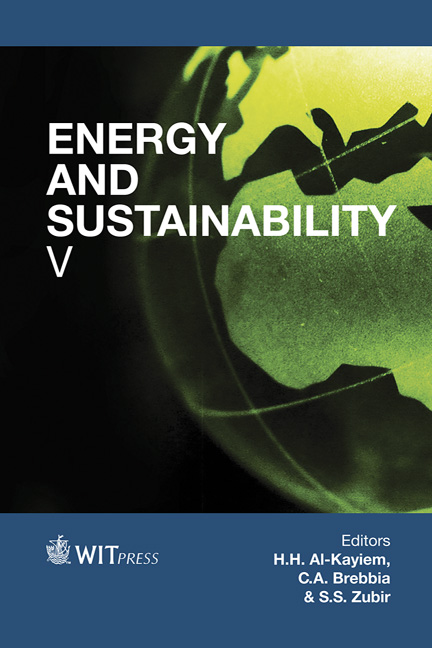Synthesis Of Novel Catalysts For Hydrodeoxygenation Of Bio-oil: Guaiacol As A Model Component
Price
Free (open access)
Transaction
Volume
186
Pages
10
Page Range
489 - 498
Published
2015
Size
560 kb
Paper DOI
10.2495/ESUS140421
Copyright
WIT Press
Author(s)
A. Aqsha, N. Mahinpey, L. Katta, L. Gras, C. J. Lim
Abstract
In this work, NiMo/Support catalysts have been prepared by impregnation technique and evaluated for hydrodeoxygneation (HDO) reaction of guaiacol (GUA) aiming at the identification of active catalysts. Among various catalysts, NiMo/TiO2 was chosen to understand the influence of reaction parameters, such as temperature, reaction time, H2 pressure, and quantity of the catalyst. The influence of the metal components on guaiacol conversion is determined by comparing mono (Ni and Mo) metals deposited TiO2. These results signify the alloying nature of metal components. GCMS results showed that phenol is a major component in all the conditions. As there is an increase in the temperature (200, 250, 300, 350C), reaction time (1, 5, 8, 24 h), H2/guaiacol molar feed ratio (0, 1:2, 1:1, and 2:1), and catalyst amount (0, 25, 50, 100 mg), the conversion has increased significantly while maintaining the high selectivity to HDO products without ring opening reactions. Under optimized conditions (350C and 2:1 of H2:guaiacol ratio), 98% guaiacol is converted on NiMo/TiO2 resulting phenol, poly methyl substituted phenols, and traces of cyclohexanone and benzene. It is remarkable that a low amount of catechol dimethyl ether and no indication of catechol and creosol were detected.
Keywords
catalyst, guaiacol, hydrodeoxygenation, impregnation, phenol





